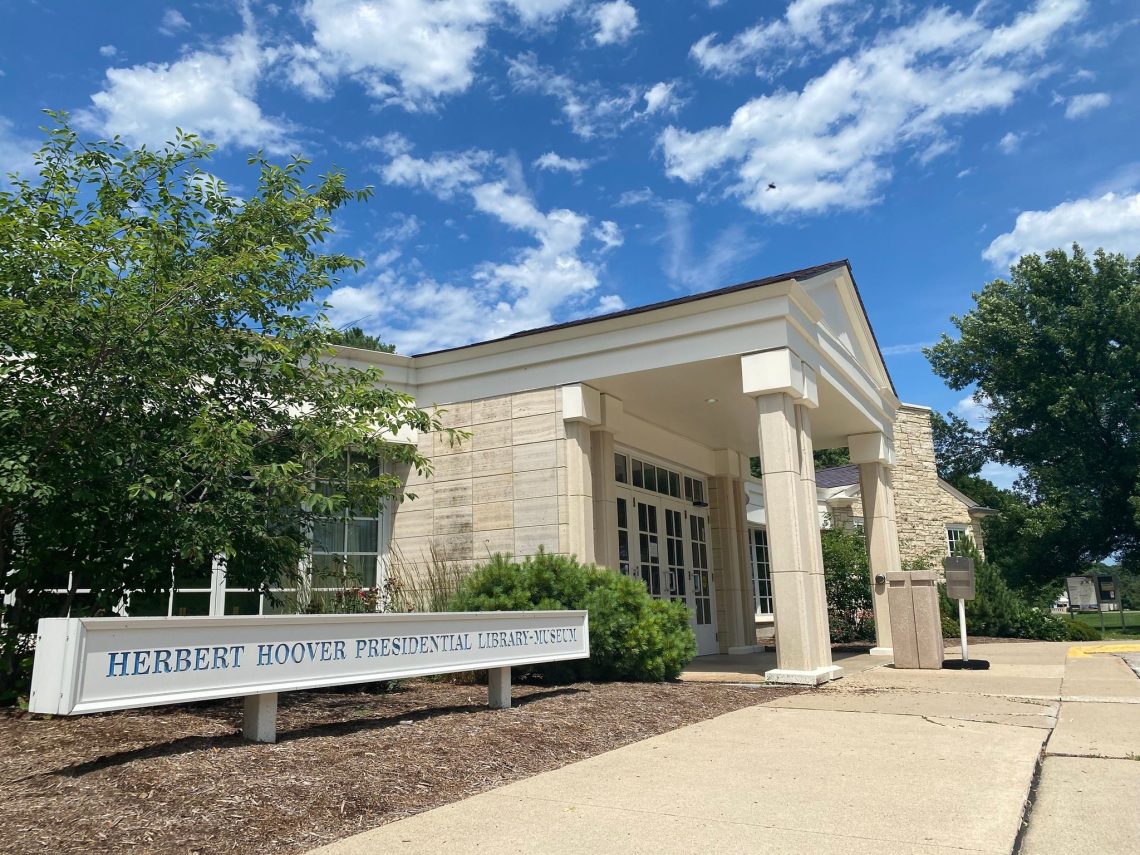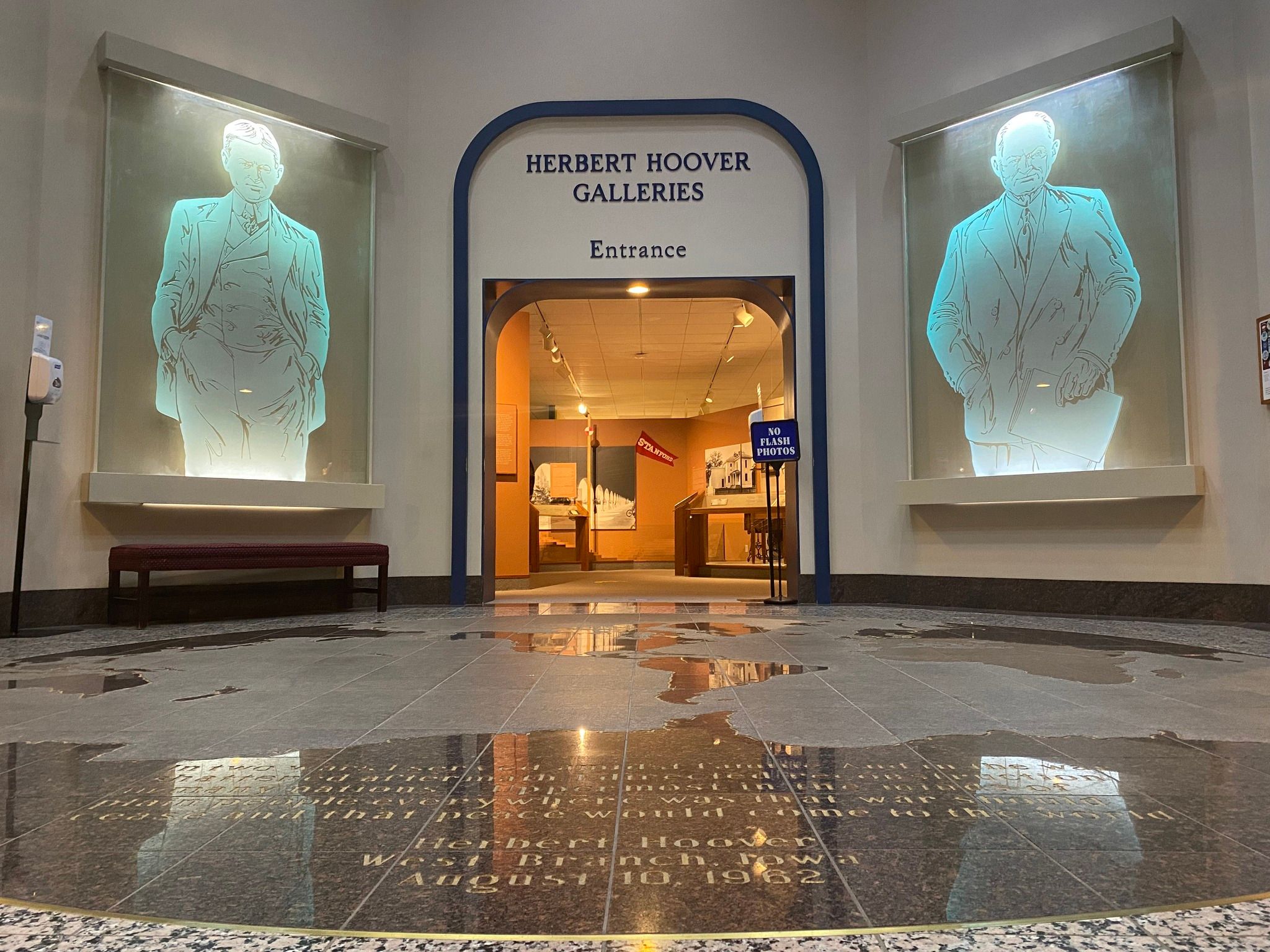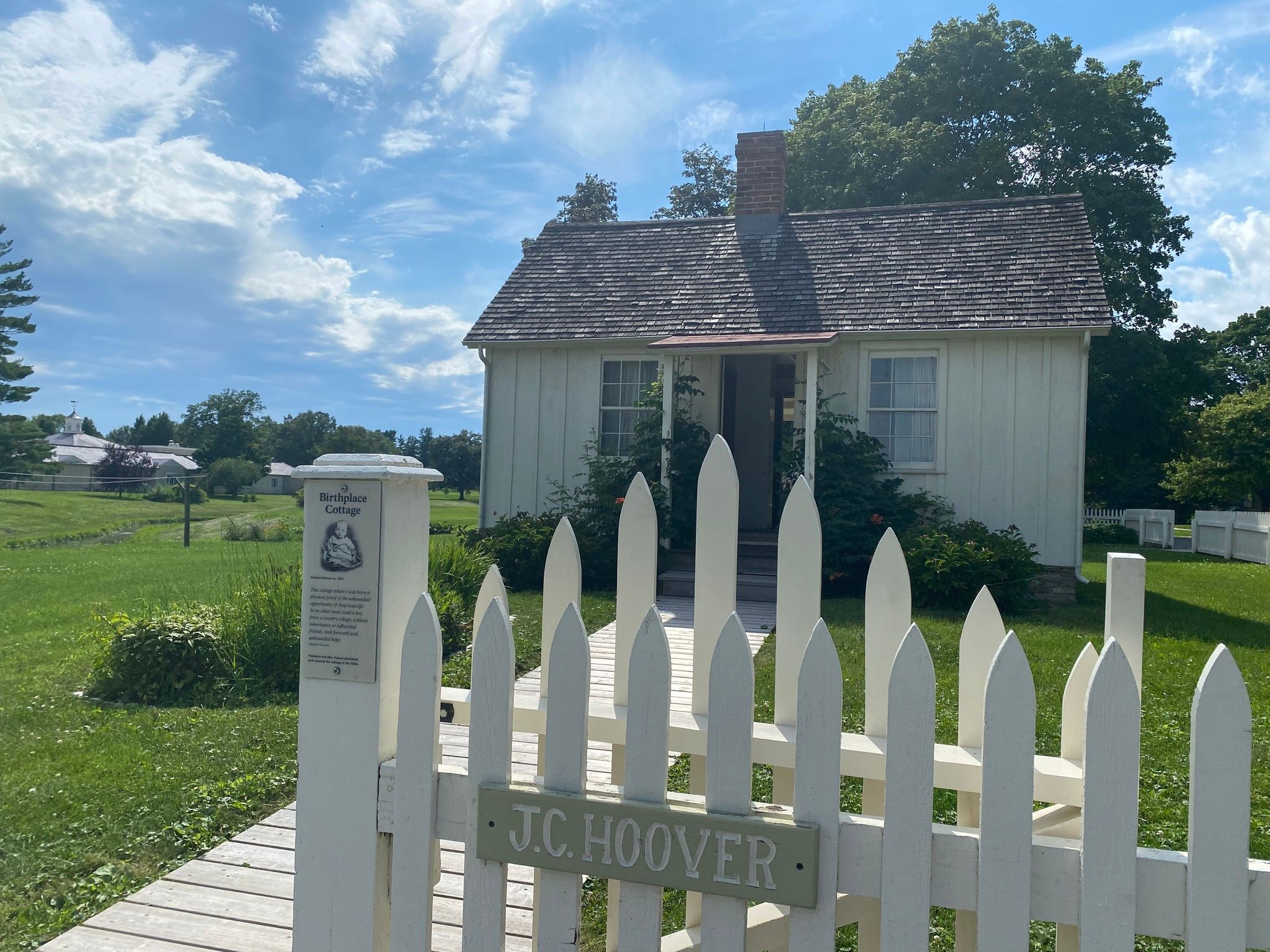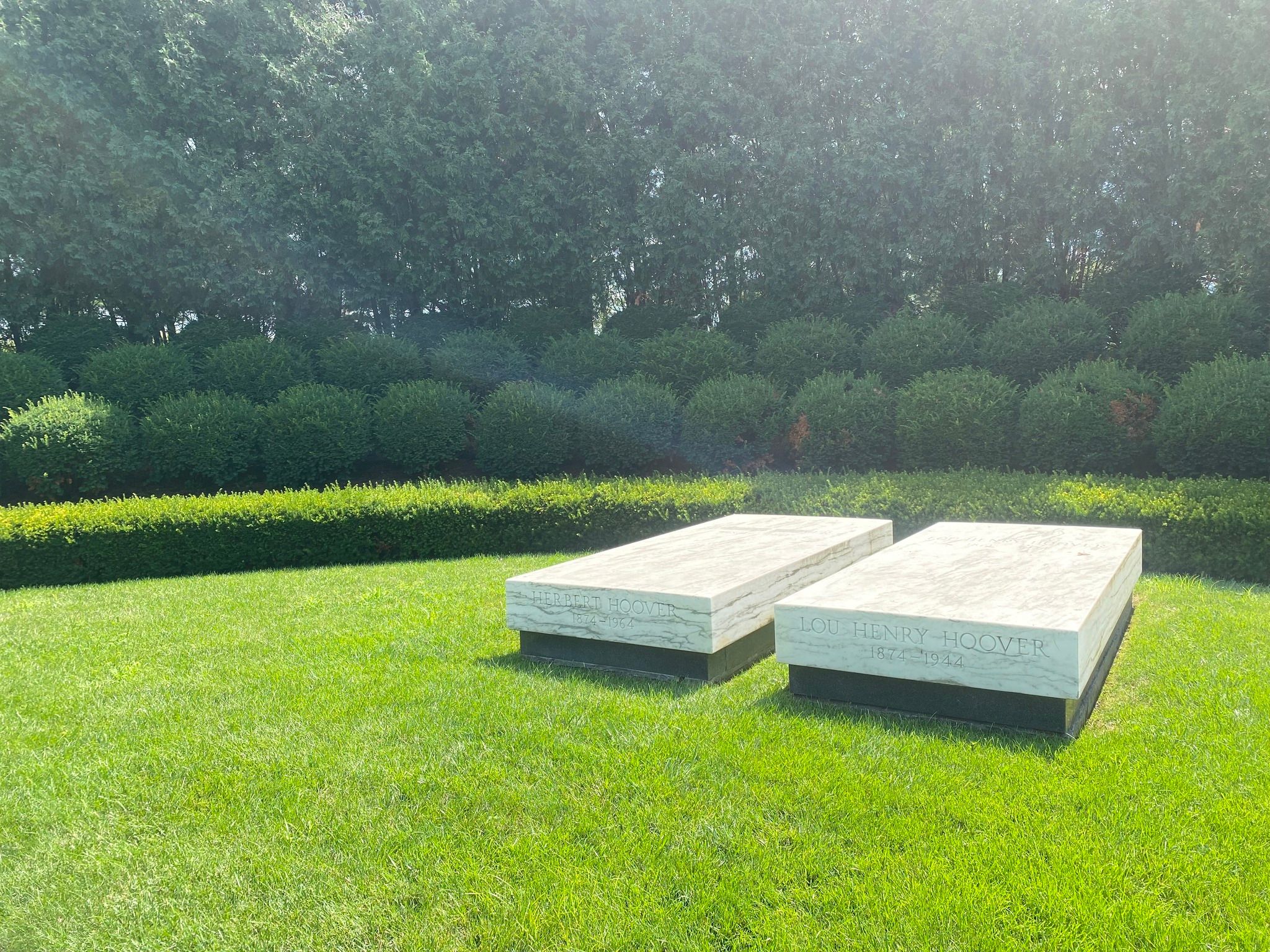
Why Good People Don’t Run for Office
When I was preparing to leave for Iowa, a couple of people made a point of saying that the Midwest seems oddly pale compared to Switzerland, compared to Austria, compared to whatever, fill-in-the-blank with some other beautiful place you’ve gone or seen people go. And while I don’t think that’s entirely fair to the good people of Iowa, which I’ll speak to in a moment, I do think it’s reasonable to explain my rationale, seeing as Iowa does feel a bit random. On the one hand, it would be easy to say I came here because my family used to live here, thirty years ago. It would also be quite an easy thing to say I came here to visit the doctor who saved my brother’s life when he was a preterm infant. But none of those things are entirely accurate. I didn’t come here because of my own past, or my family’s past, but because of our American past, because of Herbert Hoover.
In the drifting and fickle pantheon of our American knowledge, that name either rings no bells or just a small one. If it rings no bells, I’d like to help you paint the canvas. And if it rings just one, I’d like to help add to the modest scribbles on your canvas. Because I want to address a bigger issue, why good people don’t run for public office, not as often as we might like. But let me start by trying to sum up Hoover’s ninety years in a single, albeit long paragraph.
Sometimes referred to as Bert, Hoover was born in 1874 to an Iowa blacksmith and a Canadian mother, both of whom died when he was ten, leaving the young Quaker to eventually take up residence with an uncle in Oregon. Growing up during the Industrial Revolution, Hoover entered an engineering program at Stanford University, newly formed at the time, met his wife, also an engineer, and took a job managing Australian mines, Chinese mines, and British mines, all of which earned him a reputation as one of the hardest working and wealthiest men in the world. For a man of humble origins, Hoover found himself eventually leading humanitarian missions in Belgium, at the start of WWI, and throughout Europe, at the end of WWI, providing food for millions of displaced children and their families. As a result, throughout the roaring twenties, right up until his election as president (a landslide, BTW), Americans saw him as the most qualified man the nation had ever produced, a businessman and a problem-solver with a proven record and a heart, the perfect specimen. Alas came the crash on Wall Street during his first year in office, his inability to get much passed through a divided Congress that might have turned the tide, and the subsequent election of Franklin D. Roosevelt, which buried him in the legacy of failure. Never mind that he had nothing to do with the crash, that the wheels of economic disaster were churning on a global level, well beyond his control. And yet, and yet, and yet, Hoover somehow managed to outlive the age, even past Kennedy, writing endless books and articles, again leading humanitarian efforts after World War II, and dying quietly, unceremoniously, at the age of 90.
Now. To my original point, my original title, Hoover was (and still is) the poster boy for not getting involved with politics, not running a campaign, not seeking election, for letting someone else do it, someone else who loves the fame and the adulation and the equally awful risk of loss. Even before he was elected, back in the early twenties, Hoover was smart enough not to get involved much in his own campaigns, the kind of man who others wanted to run for president, but someone who personally lacked an interest in the pay-to-play power grabs that came from jockeying for votes. He was a genuinely good man who didn’t like the game. And for someone who spent years overseas, helping to resolve child starvation, you can probably imagine why party politics wouldn’t look all that appealing. Because it’s one thing to care about people. It’s quite another to beg for their approval, for their votes, to risk the possibility of trading one, two, or all of your human values to earn that approval and thus give up your soul to the devil of impossible expectations.
Perhaps more than any other nation, the United States has a fetish for aggressive hyperbole, for using the least accurate language, the most insulting, summative, all-encompassing narratives to describe the life of another human being. Politically, we live in a constant state of uncivil destruction, seeking and gleefully welcoming the downfall of those we believe are on the wrong side of something, anything, whatever it is we think we know better. And because we have an equally dark fetish for partisanship, we pick up our pitchforks and stake out in favor of the people on our side of a line, even when they’ve committed the most heinous, unlawful acts, simply because we can’t be seen to let the other side get a point. It’s in our revolutionary DNA. It’s who we are. It’s who we’ve been and who we’re probably going to be until we are no more. Even Lincoln, whose grave I also visited on this trip, was accused of being a tyrant, mocked as a Herod or a Nero, lampooned as a chimp and a chump, barely capable of putting two or three words together.
So why would a good person, someone with talent, with a heart, someone with ideas, someone who might even embody the American Dream like Hoover did, whatever that looks like today, choose to throw themselves to the wolves and run for office, knowing that a percentage of the population will always come after them, not only before the election, but after the election if they win, well into posterity, hoping to undo their meager hope of a legacy… why would anyone submit to that?
The answer is simple. Good people run for office for the same reason other good people do whatever it is they do. Because they think they can help, because enough people tell them it’s worth the time, the energy, the risk, even if it doesn’t work out. Honestly, it’s why I teach, why I hope, why I try to remain optimistic, against all common sense to which pessimism might be the more appropriate response, because I can’t really imagine turning in my keys and walking away from the classroom, even as so many others understandably give up. I think some of us are just hardwired to do what we do, to consider the risks, the challenges, the high wire acts that go into our callings and our worlds, and keep showing up to start the next gig, the next phase in our vocation.
But by the same token, when you find yourself wondering why smarter, better people don’t run for office, it’s because they’re usually smarter, better people. Or they just know their history. Were it not for the Great Depression, were it not for those four years he sat in the White House, a blip on his long, productive, successful ninety-year resume, we might all remember Herbert Hoover as an American icon, an engineering genius, an international humanitarian. Perhaps we’d have statues of him around the country, far beyond West Branch, Iowa.
Alas, we do not. So he lays now with his wife beyond a field of flowers and corn, not in Arlington, not in some grand location, but in the humble town where he first became good, just as Iowans are known to be and become, just as I was once, and was this week, a witness.




